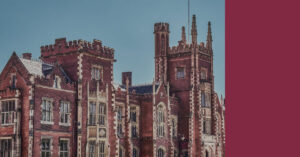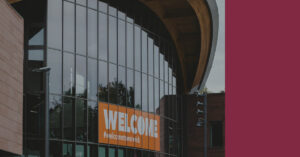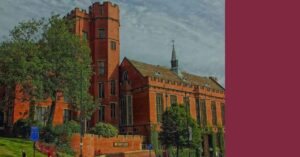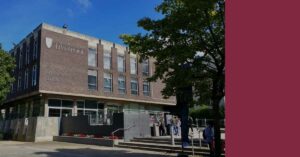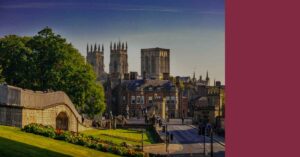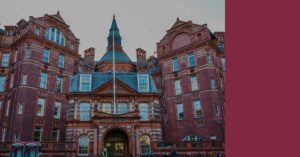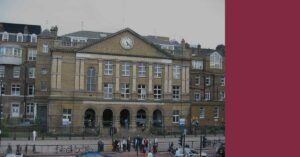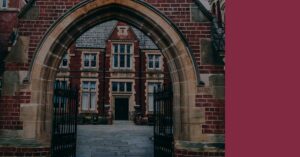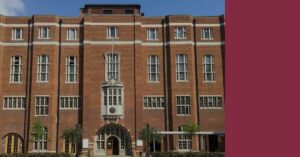Welcome to our UK Medical School Review series. In this series, we work with current students to produce an in-depth overview of each UK Medical School, covering what it is like to study there, how the course looks and what you need to get in.
Today, we are focussing on Queen’s University Belfast Medical School, a research-intensive University and one of the smallest Medical Schools in the country. James, a Queen’s Medic, will share his experiences and insights as a current student throughout.
Overview Of Queen's University Belfast Medical School
About Queen’s University Belfast Medical School
Founded in 1845 as Queen’s College Belfast, what is now known as Queen’s University Belfast became an independent university in 1908. Queen’s is a member of the Russell Group of research-intensive universities, the Association of Commonwealth Universities, the European University Association, Universities UK and Universities Ireland.
Queen’s University Belfast offers one Medicine programme: a standard 5-year Medicine Undergraduate course culminating in the award of a Bachelor of Medicine, Bachelor of Surgery (MBChB) degree. Additionally, there is also a 5-year Dentistry Undergraduate course.
Queen’s University Belfast Medical School
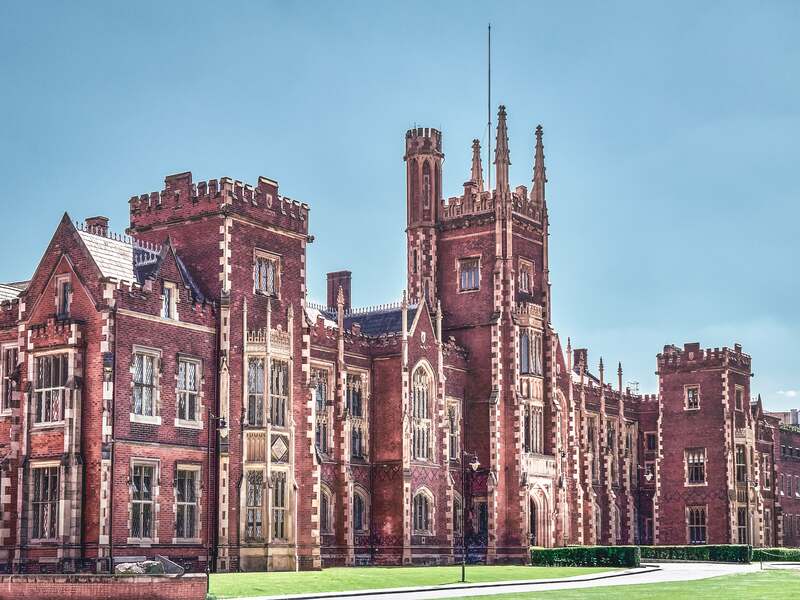
- University Age: 177
- UK Ranking: 10th
- Pint Price: £3.80
- Alumni Notability: 10/10
- A-level Requirements: AAA
- Places Available: 262
- Applicant Success Rate: 26%
- Teaching Style: Integrated
- Interview Style: MMI
- Admissions Test: UCAT
Queen’s University Belfast Medical School Alumni
Among Queen’s Belfast notable alumni is Frank Pantridge who went on to become a physician and cardiologist who transformed emergency medicine and paramedic services with his invention – the portable defibrillator.
Why did you choose to study at Queen’s University Belfast?
“I was very conscious of how expensive going to university, in particular Medical School, is so that was one of the main driving factors for me. I live in Northern Ireland, therefore Queen’s University Belfast allows me to be close to home and save costs on fees. ”
What is the best thing and worst thing about Queen’s University Belfast Medical School?
“I do believe the university takes our feedback seriously and are willing to improve. In the first year, we got lots of surveys after modules, and then a couple of weeks later would have a talk about how these issues were being resolved. As for what isn’t as good, sometimes placements are poorly coordinated in 3rd year, and this leaves students showing up without the doctors knowing in advance.”
Medical School Rankings
The following link will take you to the Complete University Guide Medicine League Table. Here, you can see that the Queen’s University Belfast Medical School takes 10th position with an overall score of 97%:
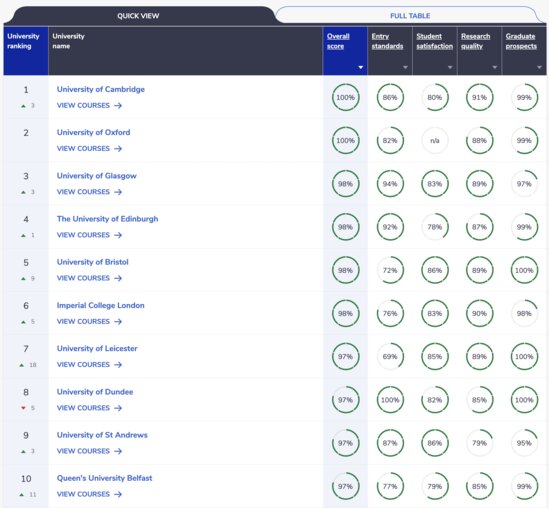
The table also highlights 99% graduate prospects for Queen’s Medics so there’s little to worry about once you graduate!
Rankings will, of course, differ between other tables; the Guardian includes different aspects to the Complete University Guide. When making your own decision on which table to look at, think about what you place more importance on, such as spending per student or career prospects. Keep in mind that all Medical Schools are highly ranked with excellent ratings across the board.
Queen’s University Belfast Medical School Fees And Financial Support
The yearly tuition fees for Undergraduate Medicine at Queen’s University Belfast are £4,710 for students from Northern Ireland and the Republic of Ireland. For students from the rest of the UK, the fees will be £9,250 per year. For international students, it is £34,450 per year. There are different tuition fee and student financial support arrangements for students from Northern Ireland, those from England, Scotland and Wales, and those from the European Union. Information on funding options and financial assistance for undergraduate student is available at www.qub.ac.uk/Study/Undergraduate/Fees-and-scholarships/.
What are Queen’s University Belfast living costs like?
Cost of a pint: £3.80. Transport Costs: £60/week as I travelled from home. Hospital accommodation is free. When I stayed here, I spent around £30/week on food and saved on petrol costs.
Not sure where to start with your Medical School application?
Our Complete Bundle provides support for your Personal Statement, UCAT, BMAT and Interview and guides you to a successful application.
With our Complete Bundle, we guarantee that you will get at least one offer to study Medicine, or your money back.
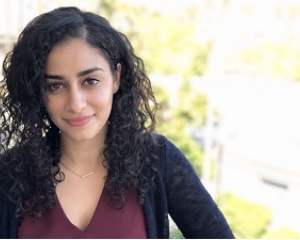


MEDICINE MASTERY BUNDLE
Not sure where to start with your Medical School application?
Get full, comprehensive support for your medical school application with 6med’s Medicine Mastery Bundle. Access everything you need for success as soon as you sign up.
UCAT.Ninja
UCAT.Ninja
Studying At Queen's University Belfast Medical School
Queen’s Medical degree is a 5-year course. The curriculum is integrated and systems based. It is one of the few Medical Schools in the Uk to teach students anatomy through cadaveric full-body dissection and does so in a state-of-the-art modern Dissection Suite.
Students are introduced to clinical work from the onset and by third year almost all teaching is in the clinical setting. Good communication and examination skills training is undertaken in the Clinical Skills Education Centre with our ‘Patients as Partners’ before students move to actual patient contact in the healthcare environment.
Four ‘Double-Helical Themes’ weave their way into every module and year of the course. These themes – the DNA of the curriculum – are Global and Population Health, Clinical Science and Practice, Achieving Good Medical Practice and Teamwork for Safe Care.
In final year all students undertake an Assistantship module which aims to ensure that graduates have a smooth transition into their first Foundation post.
What is a week in first year like at Queen’s Medical School?
Monday: Clinical Skills (3hrs in afternoon).
Tuesday: Physiology (2hrs of lectures in the morning), Student Selected Component (eg Heart Failure Module).
Wednesday: Population Studies (including psychology, epidemiology and sociology), Afternoon Off.
Thursday: Diseases (2hrs of lectures in the morning discussing pathophysiology), Treatment (1hr lecture in afternoon, discussing pharmacology).
Friday: Treatment Tutorial (2hrs in small groups of 8 to discuss a case related to previous lecture material). Anatomy (2hrs in morning, in dissection labs on full body cadavers eg upper limb focussed for 6weeks).
Queen’s University Belfast Medical School Degree Content
At Queen’s University Belfast’s School of Medicine, Dentistry, and Biomedical Sciences there is one Medicine degree for Undergraduate students, and also one Dentistry degree.
During the first two years of the degree you learn about the scientific basis of medical practice. You gain knowledge about each body system, focusing on the mechanisms of cellular structure and function. You also study pathology, microbiology, therapeutics and genetics. Teaching of basic science subjects is integrated with clinical skills training which you acquire through clinical simulation and practice with patients.
| The third year has a greater clinical focus. Classroom-based and clinical teaching takes place in each of the medical and surgical disciplines, which is integrated with therapeutic, pathological and microbiological principles relevant to clinical medical practice in longitudinal clerkships in hospitals and general practices all over Northern Ireland. |
At the end of second or third year, students may apply to take a year out of their medical degree to study for an intercalated degree. This extra research focused year will lead to either a qualification at Bachelor or Master’s level.
During the fourth and fifth years you gain further experience in child health, women’s health, mental health, cancer, general practice and Ageing and Health. Integrated teaching between primary and secondary care offers an opportunity for you to consolidate and advance your clinical skills and enhance your clinical and related knowledge.
In fifth year, you have the opportunity to undertake an assistantship, during which you complete the range of tasks undertaken by a Foundation Doctor. Professionalism, ethics, communication, teamwork, and related behavioural science is embedded through the Double-Helical Themes.
Below is a summary of the curriculum across the 5 years:
Summary of the curriculum:
Year 1 and Year 2: Foundations for Practice 1 and 2
- Foundations for Practice 1
- Student Selected Component 1
- Foundations for Practice 2
- SSC 2
Year 3: Immersion in Practice
- Immersion in Practice 1
- SSC 3
Year 4 and Year 5: Immersion in Practice 2 and Preparation for Practice
- Immersion in Practice 2
- SS4: Quality Improvement
- Preparation for Practice 1
- Preparation for Practice 2: Clinical Elective
The Dental School at Queen’s has been responsible for delivering dental education in Northern Ireland since 1920. The 5-year curriculum has been designed to ensure our graduates have the knowledge, skills and attributes to work effectively and successfully in the dental profession.
At Queen’s Dental School, students are provided with a range of learning experiences which enable our them to engage with subject experts, develop attributes and perspectives that will equip them for life and work in a global society. The students have access to innovative technologies and a world class library that enhances their development as independent, lifelong learners.
What Makes Queen's University Belfast Unique?
What is unique about Queen’s University Belfast Medical School?
“The staff at Queen’s are really friendly. I’m not saying this wouldn’t be the case at other Medical Schools but my personal experience has been bettered because of them. Getting to do full-body cadaveric dissection, is possibly one of the most unique parts of Queen’s and it is something that I really enjoy getting to do.”
Candidate Selection
Stage 1 – Cognitive Ability: Consideration of previous academic performance, including school, college and university grades as appropriate. Aptitude testing using the University Clinical Aptitude Test (UCAT).
Stage 2 – Non-Cognitive Ability/Personal Attributes: This will comprise multi-mini interviews carefully designed to evaluate non-cognitive ability / personal attributes objectively.
All applicants will be scored at Stage 1 of the selection process and ranked. From this, candidates will be selected for interview (Stage 2) and a final decision about whether or not to make a conditional or unconditional offer will be based solely on interview performance.
Queen's University belfast Entry Requirements
Medicine Course
| Exam | Requirements |
|---|---|
| GCSEs | GCSE Mathematics minimum grade C/4 and either GCSE Physics minimum grade C/4 or GCSE Double Award Science minimum grades CC/44 are required if these subjects are not offered at AS-level or A-level. A maximum of either one Applied A-level or one Applied AS-level will be counted. Please also note that only one Mathematics subject will be counted at A-level (the other would be acceptable as the fourth AS-level). A-level Critical Thinking and both AS-level and A-level General Studies are not acceptable. In considering applications, GCSE performance in the best 9 subjects will be scored with 4 points awarded for an A* (grade 9 on the new 9-1 grading scale), 3 points for an A (grades 7 and 8), 2 points for a B (grade 6) and 1 point for a C*/C (grades 4 and 5). Please note that only GCSEs completed in Year 11 and Year 12 (Year 10 and Year 11 in England and Wales) will be counted for scoring purposes. |
| A-Levels | AAA at A-level + A in a fourth AS-level subject including A-level Chemistry plus at least one other A-level from Biology/Human Biology, Mathematics or Physics. Grade A in the EPQ or Advanced Welsh Baccalaureate or a grade B in a 4th A-level will be acceptable in lieu of the 4th AS-level. If not offered at A-level then Biology/Human Biology grade A as a 4th AS-level or grade B as a 5th AS-level. OR A*AA at A-level including Chemistry and Biology/Human Biology. OR A*AA at A-level including Chemistry and either Mathematics or Physics + AS-level Biology grade B. |
| Irish Leaving Certificate | H1H1H1H1H2H2 including Higher Level grade H1 in Biology and Chemistry + if not offered at Higher Level then Ordinary Level grade O3 in Mathematics. Students not offering Physics as part of their Leaving Certificate must have a grade A or Higher Merit in Junior Certificate Science. |
Dentistry Course
| Exam | Requirements |
|---|---|
| GCSEs | For NI and GB applicants, GCSE performance in the best 9 subjects will be scored with 4 points awarded for an A* (grade 9 on the new 9-1 grading scale), 3 points for an A (grades 7 and 8), 2 points for a B (grade 6) and 1 point for a C*/C (grades 4 and 5). Please note that only GCSEs completed in Year 11 and Year 12 (Year 10 and Year 11 in England and Wales) will be counted for scoring purposes. |
| A-Levels | AAA at A-level including Biology/Human Biology and Chemistry. GCSE Mathematics minimum grade C/4 is required if not offered at AS-level or A-level. For A-level School Leavers a maximum of one Applied A-level will be counted. Please also note that only one Mathematics subject will be counted at A-level. A-level Critical Thinking and both A-level and AS-level General Studies are not acceptable. |
| Irish Leaving Certificate | H1H1H1H1H2H2 including Higher Level grade H1 in Biology and Chemistry + if not offered at Higher Level then Ordinary Level grade O3 in Mathematics. |
| International Baccalaureate Diploma | 36 points overall including 6 6 6 at Higher Level including Biology and Chemistry + GCSE Mathematics grade C/4 or an equivalent acceptable to the University. |
Medical School application causing you confusion?
Our Complete Bundle provides support for your Personal Statement, UCAT, BMAT and Interview and guides you to a successful application.
With our Complete Bundle, we guarantee that you will get at least one offer to study Medicine, or your money back.



MEDICINE MASTERY BUNDLE
Craft an application worthy of Queen's University Belfast with 6med!
6med’s Medicine Mastery Bundle provides you with the best support for your Personal Statement, UCAT and Interview, ensuring you will earn your offer.
Personal Statement Crash Course
Personal Statement Crash Course
Queen's University Belfast Personal Statement
Queen’s Medical School do not assess your personal statement however they do expect to see, along with an excellent academic track record, a coherent and well-structured personal statement conveying a real impression of who you are and what skills you possess.
Candidates are expected to state explicitly that Medicine is their career choice. There should be evidence of commitment and motivation in the personal statement , this should include evidence of what has been done to find out about Medicine as a career. This can be demonstrated in a number of ways including: opportunities for observational experience in a clinical setting, attending medical career conferences, or undertaking voluntary work in a care setting.
Participation in activities within or outside school demonstrating transferable skills such as leadership, empathy, teamwork, and communication skills is also important for you to included.
When it comes to personal statement writing, 6med’s Personal Statement Bundle is your best bet for creating the perfect statement!
Queen's University Belfast Admissions Tests
UCAT Requirements
The UCAT is required for admission to Medicine and must be taken during the summer prior to completion of the UCAS application. For all candidates, the UCAT will be scored using the overall results from four of the papers. Candidates can obtain up to a maximum of 6 additional points.
| Banding of UCAT Scores | Points |
|---|---|
| 1200-1899 | 0 |
| 1900-2099 | 1 |
| 2100-2299 | 2 |
| 2300-2499 | 3 |
| 2500-2699 | 4 |
| 2700-2899 | 5 |
| 2900-3600 | 6 |
For all candidates, the UCAT is therefore taken into account at Stage 1 of the selection process. The Situational Judgement Test will not be considered expect if necessary to inform decisions on borderline applicants who have achieved a similar score at the interview.
The BMAT is not required.
Queen's University Belfast Medical School Interview
Candidates who meet the criteria for interview may expect their interviews to take place anytime from mid-December to March. Most decisions will be released at the end of March, with final decisions due by early May.
MMI Interview Style
The interviews take the form of Multi Mini Interviews (MMIs) which are designed to test key non-cognitive competencies for Medicine:
- Empathy
- Problem-solving
- Moral Reasoning
- Communication Skills
Look at the non-cognitive competencies that Queen’s are testing and look at your own background to see how you could demonstrate these qualities.
Before you go into the interview station, make sure to consider what the scenario entails – you will be given 1 minute to do this. Ask yourself what competencies the scenario might be trying to test. If it is a problem you are faced with, ask yourself what steps you would take to solve the problem. Consider these with the assessor so they can appreciate your decision-making processes.
Each stations carries equal marks, meaning if you don’t do as well on one you have lots of others to make up marks in.
Entry to Medicine is highly competitive and the scores at interview are used to create a rank order. Offers are made to the applicants who rank highest after interview. While some offers may be made following the early rounds of interviews, the final ranking cannot be done until all interviews are complete and in view of the work involved after this, it is anticipated that the majority of decisions will be released at the end of March with final decisions due by early May.
If you’re feeling unsure about your interview skills, you can sign up for 6med’s Interview Bundle to learn everything you need to know to ace your interviews!
Example Queen’s University Belfast Medical School Interview Questions:
- What insight into healthcare did you gain from your work experience, and how did this either confirm, or make you doubt your decision to apply for Medicine? (2017)
- Tell your friend that you cannot come to her 18th birthday party due to a family emergency, even though she has already changed the date for you once. (2019)
- You find out that your friend has an eating disorder. How do you react to this? (2021)
- An ex-prisoner who is now training to be a school teacher and a 14 year old girl who wants to be a doctor when she’s older have both been diagnosed with a terminal illness. You can only treat one person. Who would you choose to treat and why? (2018)
- Give me an example of a time you have shown good communication skills. (2020)
- Discuss NHS waiting times. (2019)
- You are the receptionist of a busy surgery and a patient is angry about his appointment being 15 minutes late. Deal with this situation. (2020)
- A student in your tutorial group is not doing his/her job for an assignment which you are supposed to complete as a group. What would you do? (2017)
- Why Queens University Belfast? (2018)
- You are a junior doctor and found out that a senior staff/doctor did something which you know is wrong and might harm the patients. What would you do? (2021)
Extra-Curriculars at Queen's University belfast
Outside of study time, what do most people get up to?
“Lots of medical societies both academic and non-academic. For me, I am involved in the Christian Medical Fellowship and Medecin San Frontiers Society (Doctors without Borders). Lots of medical students work as bank healthcare assistants which allows them to choose where they work and when they work! It is well established in Northern Ireland and 2nd year medical students and above are able to apply. The university area has lots of nice places to eat including Boojum, ChipCo, MaggieMays, Town Square etc. Nice walks including Cavehill, Shawsbridge, Lady Dixon.”
What is the Belfast accommodation like?
“Accommodation is 20mins walk from medical biology centre. Halls include Elms (BT1 and BT9), Stranmillis and Chaplaincy Halls (HUB, Derryvolgie Halls). Also lots of student houses nearby!”
Queen's University Belfast Medical School Contact
Email: [email protected], [email protected]
Tel:+44 (0)2890 972215
Postal address:
School of Medicine, Dentistry and Biomedical Sciences
Whitla Medical Building,
97 Lisburn Road,
Belfast,
BT9 7BL
You can also visit: https://www.qub.ac.uk/schools/mdbs/
Advice For Queen's University Belfast Applicants
What advice would you give to a first-year student starting at Queen’s University Belfast Medical School?
“Work consistently throughout the year. First year can be tough but it is a time to try new studying methods, get to know people well and learn the basic sciences that will carry you through the next 5 years.”
Check out our other UK Medical School Reviews:
Queen’s University Belfast Medical School is an exceptional place to study, and we’ll help you get there.
The 6med Complete Bundle puts all of our bundles together. You’ll get a place on five of our Crash Courses, Personal Statement re-drafts, mock interviews, Personal Statement, BMAT, UCAT and Interview Online Courses, access to BMAT & UCAT.Ninja™, BMAT essay marking and all of our critically acclaimed workbooks as e-books. To find out more, click the button below. This massive bundle is quite literally all you need for your Medicine application…
Not sure where to start with your Medical School application?
Our Complete Bundle provides support for your Personal Statement, UCAT, BMAT and Interview and guides you to a successful application.
With our Complete Bundle, we guarantee that you will get at least one offer to study Medicine, or your money back.



MEDICINE MASTERY BUNDLE
Not sure where to start with your Medical School application?
Get full, comprehensive support for your medical school application with 6med’s Medicine Mastery Bundle. Access everything you need for success as soon as you sign up.
MMI Crash Course
MMI Crash Course

